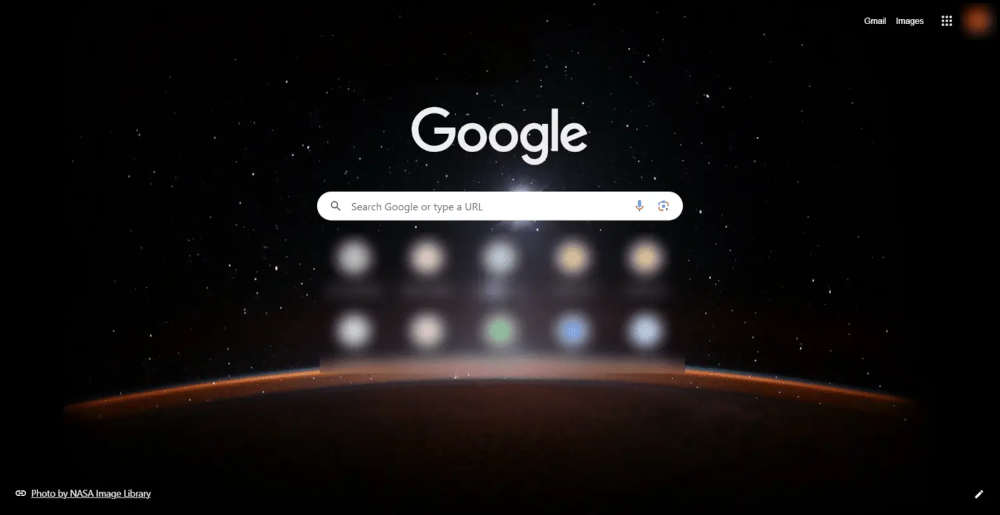What are search engines?
Search engines are a form of software that present relevant web pages to users in response to a search query – they basically show us the websites that will tell us what we need to know. A user inputs their query into the search bar of the search engine, which then generates a list of hyperlinks to web pages relevant to their search, with each followed by a small excerpt of text that gives a little more context to the link.

How do search engines work?
Search engines use automated ‘crawlers’ (also known as search engine ‘bots’ or web spiders), which go around the web discovering, understanding the available web pages, and indexing them on their enormous database. They do this regularly to keep up with new sites, ranking the pages they index in accordance with their relevance to search queries input by users.
A history of Google Search Engine
Anyone who has ever ventured onto the internet will have heard of Google – it’s by far the most used search engine. Computer scientists Larry Page and Sergey Brin together launched Google Search in 1998. The name Google itself is a play on the word Googol, which is the number 1 followed by 100 zeros; Google was always destined to provide a vast wealth of information.
Its origins lie within a university research project that the founders had been working on at Stanford University during the mid to late 90s, under which the PageRank algorithm was developed to output URLs ranked by importance. Google’s simple design attracted a growing number of users throughout the late 90s and early 2000s; even early 1999, Google had already indexed around 60 million pages.
To keep up with the changing online landscape, as well as the evolving needs of the user, Google as a company have continued to make regular core updates to the way that they index pages (known as algorithms), and present search results to those inputting the query.
As a result, there are several notable developments within Google’s history that it’s worth talking about.
Caffeine search architecture
Google Caffeine was announced in August 2009 and it turned out to be one of the most significant changes to the Google algorithm in the search engine’s history, rolled out officially in June 2010. As a completely new indexing system, it accommodated the large increase in information available on the web that Google’s old indexing system was struggling to handle. It sent out different crawlers, which could look for the newest information and indexing it accordingly.
Google Hummingbird
Google Hummingbird, a huge upgrade for Google, was announced in September 2013; it was so significant, in fact, that in retrospect it was widely named the ‘core algorithm rewrite’. It reflected the uptick in natural language search, understanding conversational queries such as ‘how to X’.
Medic search algorithm
Medic arrived in 2018, and was a broad core algorithm update that targeted industries where accurate and helpful information was needed most of all, which includes health-related websites; hence the name. This became known as Google’s Your Money or Your Life (YMYL) policy, applying heavier scrutiny to any website that could influence major elements of someone’s real world existence. This includes financial, medical, and legal information, as well as news and shopping.
What did we use before Google Search?
Obviously, the internet existed before Google did, so how did we make sense of it all before this powerhouse came along?
The answer is a combination of different platforms. The main names were Yahoo (which you may recognise), Lycos (the first search engine to go public), and AltVista (swallowed by Yahoo in 2003).
What alternative search engines can we use?
You don’t have to use Google, of course; other search engines are still available. They include:
Bing
Bing is one of Google’s main competitors as you might expect from something owned by Microsoft. It’s got roots in the previous search iterations launched by this other technological high achiever, including MSN Search, and Windows Live Search. It’s worth mentioning that Bing doesn’t offer mobile-first indexing or core web vitals like Google does.
Yahoo
Vying for the attention of the relatively small number of people who don’t automatically bring up Google when they need something, Yahoo sits alongside Bing to provide an alternative. Yahoo has certainly done the distance as a web services provider launched way back in 1994.
Yandex
Yandex is a search engine with its origins in Russia, but it can be used worldwide. It launched in 1997, not long after Google, and currently sits with around 1.52% of the market share.
Baidu
Baidu is a Chinese technology company; in fact, it’s one of the largest internet and AI companies in the world. It operates a search engine, amongst other things, and was officially launched back in 2000. As you can see, this era was certainly one for establishing internet legends!
DuckDuckGo
DuckDuckGo arrived comparably late to the party in 2008, and it’s made its name as a search engine that prioritises privacy. It does this by not tracking browsing history or searches, with extensions that stop other companies from doing the same.
When did Google Search become number 1?
Google established its dominance early on; it’s estimated that between 2002 and 2004, Google became the primary search engine to head for over AOL and Yahoo. There’s no official date, as the competition became very close before Google overtook.
Which search engine has the biggest market share?
Google has by far the biggest market share; they handle over 90% of search queries worldwide. The share of the market between the main search engines (as of April 2024) are:
- Google: 91.36%
- Bing: 3.37%
- Yandex: 1.64%
- Yahoo!: 1.1%
- Baidu: 0.99%
- DuckDuckGo: 0.53%
Is Google’s dominance slipping?
This could feel somewhat unthinkable after all we’ve just learned, but the rise of AI means we cannot rule it out. With the search and response model being revolutionised by a technology that seems almost sentient is a real threat to Google’s stronghold, though we have absolutely no doubt that instead of going head-to-head with AI, it will instead try to harness it.
The impact of Google
Google has become so powerful that, as we alluded to early, it’s even become part of our vocabulary. How often have you said that you’ve ‘Googled’ something, or told someone else to ‘Google’ it? This, of course, is in addition to the way it’s transformed the way we learn; the information we seek is just a few keystrokes away, and thanks to the way Google has kept up with the way we want to know things, it remains, for now, ingrained in our ability to work, study and just generally live!
Need help with your SEO?
We’ve dedicated our working lives to understanding, as best anyone can, how Google works. This means that in a sea of competition, our clients stand the best chance of being found above the rest on the results pages. If you’re looking for an SEO partner who can match the pace of the changing online world to keep your business discoverable online, we’re the team to work with; just give us a call or drop us an email and we’ll be more than happy to explain how it works.




Newsletter sign up
Lorem ipsum dolor sit amet, consectetur adipiscing elit. Nam vitae ante eu purus cursus aliquam. Pellentesque blandit viverra metus, a malesuada libero commodo eu.